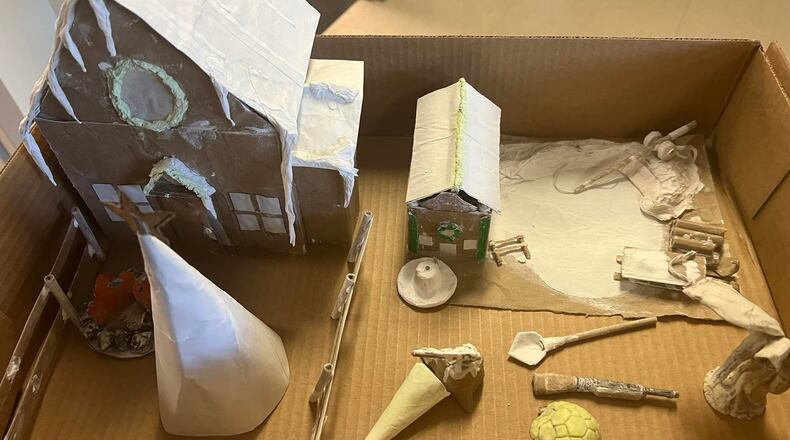It’s not about being a Grinch, it is about safety and order in the the jail, Butler County Sheriff’s Chief Deputy Anthony Dwyer said.
“There are rules and regulations that are to be adhered to and you can’t allow any type of contraband,” Dwyer said. Inmates are creative using anything they can find to fashion items to harm others or themselves.
“So even though some of the contraband is creative, it is not allowed and has to be dealt with. You can’t make arbitrary decisions of what you will and will not allow. The jail is a zero (tolerance) facility,” he said.
But, Dwyer said contraband like the Christmas village usually does not result in any type of discipline.
“If they are making things that could be considered dangerous or a weapon, those result in some type of infraction. Generally, with things like this they are just seized but there in no punitive action,” Dwyer said.
In November 2020, a sheriff’s office post of a wallet made of chip bags also shined a light on inmate creativity, but hinted at the very real issue for jail officials.
“While inspecting cells today in the jail we came across a homemade wallet made of Fritos and Cheetos bags ... the ingenuity is pretty impressive,” the post said.
While most envision contraband as drugs, weapons and items that can be fashioned into weapons, inmates use other creative items, such as a chip bag wallet, to barter or for gambling. That causes problems in a facility of 900-plus people at least accused of breaking the law.
“For instance, they like to make necklaces, we actually sell a necklace in the commissary for religious purposes. But it breaks if you pull it. It can be used as a (strangulation tool) or a weapon in any way,” said Dwyer in a Journal-News interview. “It also creates animus among other inmates that don’t have it.”
Dwyer said some talented and creative inmates are paid for drawings or paintings fashioned from a piece of sheet.
“They will barter their commissary for things, and that creates bigger issues,” Dwyer said. “That wallet is not a major security issue, but it becomes an issue between inmates — want you have and I don’t have — and then fighting when the commissary isn’t paid for something they made for another inmate.”
Dwyer has a collection of some more creative contraband items in his office, including a banjo made of Tupperware and a shampoo bottle and signed by the inmate, drawings and a colorful cross necklace.
About the Author

